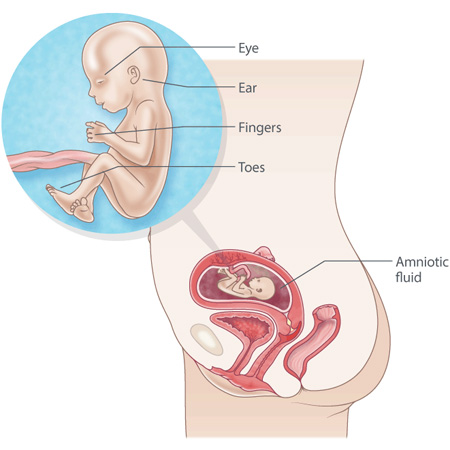
Week 16 of Pregnancy: A Journey of Transformation
Introduction
Pregnancy is a remarkable journey that involves significant physical, emotional, and hormonal changes. As you enter the second trimester, your body undergoes a series of transformations to accommodate the growing fetus. Week 16 marks a pivotal milestone in this journey, bringing about noticeable changes in your body and the development of your baby.
Physical Changes
- Uterus Expansion: Your uterus continues to expand rapidly, reaching approximately the size of a grapefruit. This expansion can lead to increased pressure on your bladder, resulting in more frequent urination.
- Abdominal Growth: As the uterus grows, your abdomen will become more noticeable. You may start to show a small baby bump, especially if this is your first pregnancy.
- Breast Enlargement: Your breasts will continue to enlarge and become more tender. The areolas may darken, and you may notice the appearance of Montgomery’s tubercles, small bumps around the nipples.
- Skin Changes: Your skin may become darker in certain areas, such as the nipples, areolas, and linea nigra, a vertical line that runs from your belly button to your pubic bone.
- Weight Gain: You may experience a gradual weight gain of about 1-2 pounds per week. This weight gain is essential for the growth and development of your baby.
Fetal Development
- Size and Appearance: At 16 weeks, your baby is approximately 4.5 inches long and weighs about 4 ounces. The fetus resembles a small human with distinct facial features, including eyes, nose, and mouth.
- Skeletal and Muscular Development: The baby’s bones are hardening, and the muscles are becoming stronger. You may feel occasional fluttering or kicking sensations, known as quickening.
- Organ Development: The baby’s organs continue to develop rapidly. The liver, kidneys, and intestines are functioning, and the heart is fully formed.
- Gender Determination: If you choose to have an ultrasound, it may be possible to determine the baby’s gender at this stage. However, the accuracy of gender determination can vary.
- Fetal Movement: Your baby is becoming more active and may move around frequently. These movements can be felt as gentle nudges or rolls.
Emotional and Hormonal Changes
- Mood Swings: Hormonal fluctuations can lead to mood swings, including feelings of happiness, sadness, or irritability.
- Increased Energy: Many women experience an increase in energy levels during the second trimester. This is due to a decrease in the levels of the hormone progesterone.
- Improved Sleep: As your nausea and fatigue subside, you may find that your sleep quality improves.
- Increased Libido: Some women experience an increase in libido during the second trimester. This is thought to be related to hormonal changes and the increased blood flow to the pelvic area.
Medical Care and Recommendations
- Prenatal Checkups: Continue to attend regular prenatal checkups with your healthcare provider. These appointments include physical exams, blood tests, and ultrasounds to monitor your health and the baby’s development.
- Genetic Testing: If you are at high risk for genetic disorders, your healthcare provider may recommend genetic testing, such as amniocentesis or chorionic villus sampling.
- Exercise: Regular exercise is safe and beneficial during pregnancy. Choose low-impact activities such as walking, swimming, or yoga.
- Nutrition: Eat a healthy diet rich in fruits, vegetables, whole grains, and lean protein. Avoid raw or undercooked foods, unpasteurized milk, and excessive caffeine.
- Hydration: Stay well-hydrated by drinking plenty of fluids, especially water.
- Sleep: Aim for 7-9 hours of sleep each night. Use pillows to support your growing belly and back.
- Stress Management: Find healthy ways to manage stress, such as yoga, meditation, or spending time in nature.
Conclusion
Week 16 of pregnancy is a significant milestone that marks the transition into the second trimester. Your body undergoes noticeable physical changes as the uterus expands and your baby grows. Fetal development accelerates, with the baby’s organs and skeletal system maturing. Emotional and hormonal changes can occur, including mood swings, increased energy, and improved sleep. Regular prenatal care, a healthy lifestyle, and stress management are essential for the well-being of both you and your baby during this transformative journey.